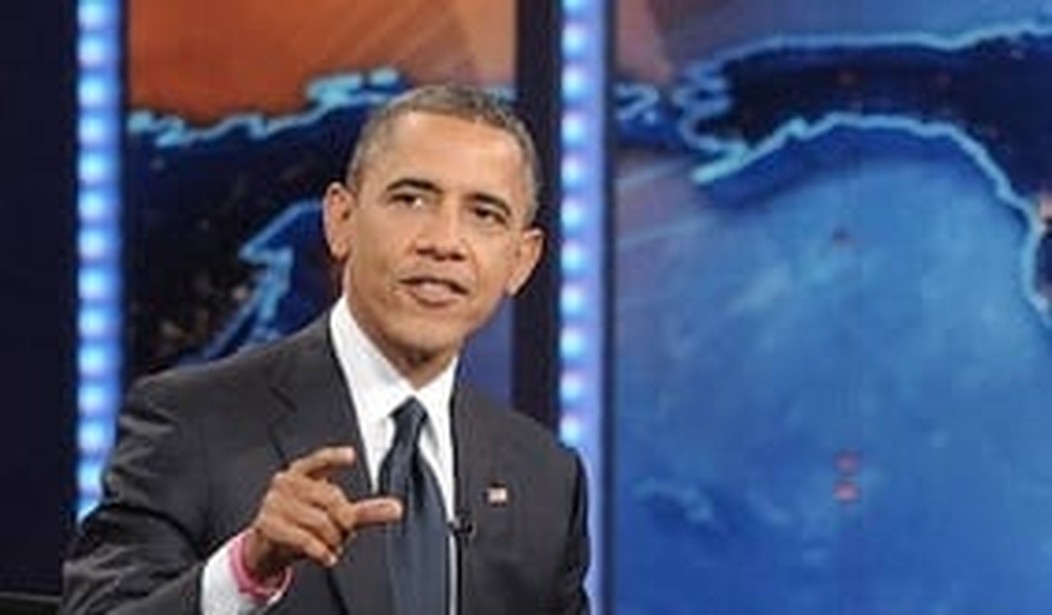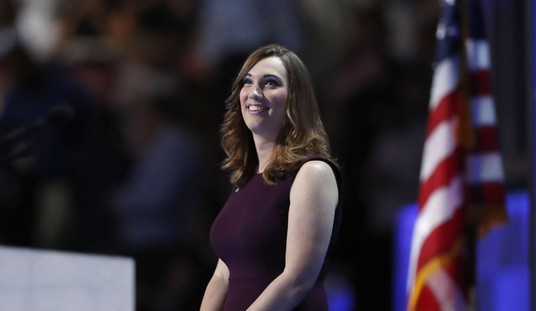On October 18, appearing on The Daily Show with Jon Stewart, President Barack Obama claimed that his administration would track down the terrorists who killed Ambassador Chris Stevens and three other Americans at the Benghazi consulate on the 11th anniversary of the September 11 attacks. Speaking of a forceful response to the assassinations, Obama reiterated a pledge that “we were going to hunt down whoever did it and bring them to justice.”
The notion of “bringing the terrorists to justice” has been a central plank of the Obama administration’s national security policy since taking office. Eager to distance himself from predecessor George W. Bush, Obama called for a more dignified foreign policy and greater respect for human rights. In an April 2007 speech to the Chicago Council on Global Affairs, candidate Obama declared:
This election offers us the chance to turn the page and open a new chapter in American leadership. The disappointment that so many around the world feel toward America right now is only a testament to the high expectations they hold for us. We must meet those expectations again, not because being respected is an end in itself, but because the security of America and the wider world demands it.
This will require a new spirit – not of bluster and bombast, but of quiet confidence and sober intelligence, a spirit of care and renewed competence. It will also require a new leader. And as a candidate for President of the United States, I am asking you to entrust me with that responsibility.
Candidate Obama reiterated this “new spirit” in his response to the 2008 conviction of Salim Hamdan, a driver for Osama bin Laden, in the first trial by military commission since 1945:
It’s time to better protect the American people and our values by bringing swift and sure justice to terrorists through our courts and our Uniform Code of Military Justice.
Obama was careful to add that “it was long past time to capture or kill Osama bin Laden and the terrorists who murdered nearly 3000 Americans.” That was rhetorical flourish, however. The abiding moral concern in the early days of his administration was to focus on prosecutions of terrorists who had brought war against the American people, and in that regard he would be “unlike his predecessor.”
In the days and weeks after the attack at the Libya consulate last month, members of the administration reiterated the president’s pledge to bring the Benghazi terrorists to justice. On the morning after the attack, President Obama resolved:
We will not waver in our commitment to see that justice is done for this terrible act. And make no mistake, justice will be done.
On September 21, Secretary of State Hillary Clinton, at a press conference with Pakistani Foreign Minister Hina Rabbani Khar, announced:
What happened in Benghazi was a terrorist attack, and we will not rest until we have tracked down and brought to justice the terrorists who murdered four Americans.
On October 11, Obama’s deputy campaign manager Stephanie Cutter, responding to the devastating political backlash against the administration, claimed that “POTUS’ priorities are getting facts & bringing terrorists to justice.”
And at the final presidential debate of 2012, on October 22 in Boca Raton, Florida, President Obama again reiterated the administration’s pledge to bring the terrorists to justice:
Now, with respect to Libya, as I indicated in the last debate, when we received that phone call, I immediately made sure that, number one, we did everything we could to secure those Americans who were still in harm’s way; number two, that we would investigate exactly what happened; and number three, most importantly, that we would go after those who killed Americans, and we would bring them to justice, and that’s exactly what we’re going to do.
Yet despite such apparently fervent announcements, there’s mixed evidence on the administration’s commitment to apprehending the Benghazi suspects. Indeed, in the context of Obama’s larger conduct of the war on terror, the emerging evidence from the history of U.S. counter-terrrorism shows a long-standing rejection of the so-called “law and order” approach to apprehending terrorists.
First, in a literally shocking report at the New York Times on October 19, Ahmed Abu Khattala, one of the key “ringleaders” of the Benghazi attack, purportedly “spent two leisurely hours on Thursday evening at a crowded luxury hotel, sipping a strawberry frappe on a patio and scoffing at the threats coming from the American and Libyan governments.” According to the report, Abu Khattala indicated that there was no effective U.S. investigation going on in Benghazi, “no authority has even questioned him about the attack, he said, and he has no plans to go into hiding.”
Second, while Abu Khattala’s comments are brazen and perhaps exaggerated, it’s true that the FBI failed to send investigators to the diplomatic compound for nearly a month after the attack. And out of that delay comes another dilemma: the prospect of criminal trials for the perpetrators. Alana Goodman at Commentary, discussing the long-delayed FBI investigation, raised questions surrounding criminal trials:
…we’re now almost a month out from the attack, and the Obama administration still hasn’t said whether it will deal with the terrorists behind it….
There’s also the question of where to prosecute the terrorists — can the U.S. risk allowing them to go to trial in Libya? Or trust the prison system in a country that’s still undergoing a tumultuous transition? Trying the terrorists in the U.S. brings its own batch of problems. Even if the FBI is able to build a strong case from its late investigation, there will be controversy over giving terrorists a court platform, and debates over where to put them if they are convicted.
Frankly, emerging evidence on the administration’s counter-terror policies suggests that Obama would rather avoid criminal prosecutions of the suspects — evidence that disturbingly contradicts the president’s earlier grandiose statements about American values and global standards of universal justice.
According to Steve Coll in a recent article at the New York Review of Books titled “Dead or Alive,” as a practical and political matter the administration rejects the capture of terrorists during military operations. Drawing on Navy SEAL Mark Owens’ recently published book on the Abbottabad raid that killed Osama bin Laden, Coll writes:
…the Obama administration’s terrorist-targeting and detention system is heavily biased toward killing, inconsonant with constitutional and democratic principles, and unsustainable. The president has become personally invested in a system of targeted killing of dozens of suspected militants annually by drone strikes and Special Forces raids where the legal standards employed to designate targets for lethal action or to review periodic reports of mistakes are entirely secret.
When he ordered the mission that killed bin Laden, Obama slew a dragon at once dangerous and shrouded by myth. Bissonnette [Mark Owens] expressed a kind of contempt for bin Laden for not fighting back:
I think in the end, he taught a lot of people to do—you know, martyr themselves and he masterminded the 9/11 attacks. But in the end, he wasn’t even willing to roger up himself with a gun and put up a fight. So I think that speaks for itself.
Operation Neptune Spear succeeded on its own terms but it has exposed how far the grinding machinery of American counterterrorism operations has drifted from the ideals Obama enunciated in his National Archives speech. If Obama is elected to a second term, he will have the political space to reset his kill list policies, to restore to greater primacy missions that seek to capture terrorists and diminish and expose them by putting them on trial for their crimes. Such a change of course would require a fuller measure of political courage than that needed to order the SEALs to Abbottabad.
The account of this extreme reluctance to capture bin Laden is confirmed in Mark Bowden’s recent report on the Abbottabad raid at Vanity Fair, “Inside Osama Bin Laden’s Final Hours—and How the White House Chose Their Assassination Plot“:
Three SEALs came up the stairs methodically, scanning different angles, searching while protecting one another. The first man up spotted a tall, bearded, swarthy man in a prayer cap wearing traditional Pakistani clothes, a knee-length flowing shirt over pajama-like bottoms. The SEAL fired and the man retreated quickly. The teammates followed. As the first SEAL entered the bedroom, he saw bin Laden on the floor, but first had to contend with [Bin Laden’s wife] Amal, who shouted and moved in front of her husband. The SEAL knocked her aside as his teammates stood over the mortally wounded bin Laden and fired killing shots into his chest.
The engagement was over in seconds. Amal had been shot in the leg. Bin Laden had weapons on a shelf in his bedroom, but had not picked them up. His identity was unmistakable, even with the grotesque hole through his right forehead. When he was shot he had not been surrendering, but neither had he been resisting. It is impossible to second-guess men in a firefight, but the available evidence suggests that if the SEALs’ first priority had been to take bin Laden alive he would be in U.S. custody today. What is more likely is that the SEALs had no intention of taking bin Laden alive, even though no one in the White House or chain of command had issued such an order. It would have taken a strong directive to capture him alive to preempt the instinct to kill him. The men who conducted the raid were hardened to violence and death. Their inclination would have been to shoot bin Laden on sight, just as they shot the other men they encountered in the compound.
From the account it’s clear that the SEALs’ “first priority” wasn’t the capture of Bin Laden. And it’s easy to see why: The United States had been hunting the al-Qaeda mastermind for over a decade, and most Americans would have little quarrel with the death during firefight of the man considered responsible for the September 11 attacks. But the evidence suggests that a firefight never took place. Bin Laden never lifted a weapon in self-defense. And since the SEALs were not killing the occupants of the safe house indiscriminately, it’s entirely possible that Bin Laden could have been arrested on the spot.
But doing so would have created enormous problems inherent to the history of the Obama administration’s national security policy, from the much-criticized policy of targeted killings to the attempts to try terrorists in civilian courts. Running for office on a platform of humanitarian idealism is one thing. Carrying out an effective counter-terrorism policy amid an enormous range of domestic and international constraints is another. What’s most likely is that the invocation of “bringing the terrorists to justice” is just a horribly dishonest ruse that this administration keeps alive for convenient but coldly calculated political utility. And as such, it’s clear that Republican attacks of deceit and dishonesty against Obama — with growing claims of a cover up on the entire Libya debacle — are in fact embedded in a history of national security duplicity that this president has foisted on the American people since taking office. The election on November 6 will ultimately reveal whether the country has had enough of it.









Join the conversation as a VIP Member